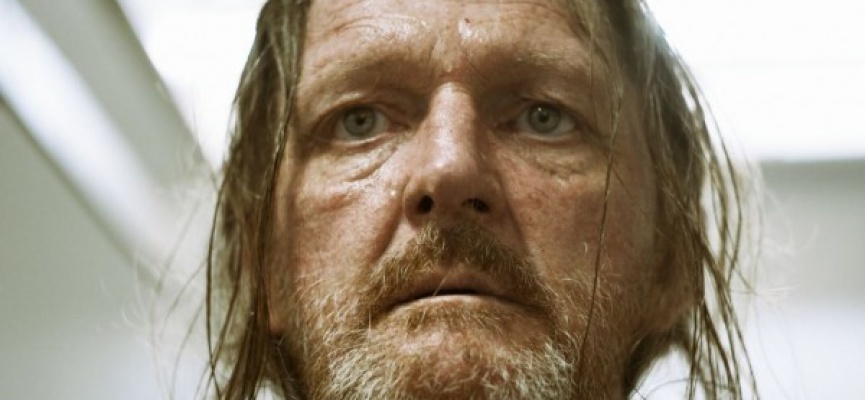|
Hail is an
Australian docudrama, fictionalising the life of former criminal Daniel
P.
Jones, whose been cast as himself. The film starts with Jones leaving
prison to
be reunited with his partner Leanne (real life partner Leanne Letch).
Despite
his past, they are a happy couple, with enough friends to go out with
and
celebrate. But Danny is also troubled by having to find employment when
he has
limited preparation and continues to be judged on his scruffy
appearance. Once
Danny resorts to stealing and eventually drug taking, tragedy strikes,
which
sees his moral judgements spiral out of control. This leads to
documentary
filmmaker and director Amiel Courtin-Wilson's arching philosophical
problem: are
the poor choices one makes disruptive to the amount of love that we
know exists
inside of them? It's a powerful, unresolved question, encapsulated in a
performance so transcendent of any conventional description or method
of acting that it defies one's need to critique
Jones on his ability to play his role. He
engages us with a multifaceted
version of himself: funny, romantic and gentle but also extremely
brittle in
the face of the unknown world that he thinks will offer little to
someone with
his past. But Hail is a great
performance short of a movie, convincingly portrayed but amateurish and
unsatisfying in every other respect. Director Courtin-Wilson makes the
fatal
error of crafting this story without a script, using scene breakdowns
and
non-professional actors instead.

The
film's composition is disastrous. It lacks both rhythm and structure.
Some
scenes are too short, disjointed and purposeless, while others are
overlong,
rambling and poorly photographed; a result of choosing to improvise
dialogue
but unwilling to call 'cut' either. The early scenes show some promise.
Danny
seeks employment in a garage, without a résumé,
and
you admire his unrehearsed bravery, wincing as he's verbally
blowtorched by
younger men. "You look like a criminal", one bloke tells him. However,
true to the film's hopelessly fragmented approach, the employment
thread is
left unresolved and therefore weightless. Hail's
second half is the most fictionalised and bloody of the two parts but
also the more
opaque and unconvincing. Excessive visual gimmicks and over-stylisation
provide
little closure or meaning, building to moments of ugly, sadistic
violence that
disperse any relatable socio-political issues. Are techniques like
screen
blurring and extreme close-ups of Danny's lips and facial hair supposed
to
represent our changing perspective of this man during his psychological
transformation? The film shares an uneasy relationship with these
formal
devices. They visualise Danny with an almost inhuman perspective, but
given
Wilson and Danny are friends in real life, he's not prepared to
demonise him
entirely. Earlier, Danny mentions his partner is like a palindrome,
something
that is the same at the end as it is at the beginning, and the film ends
unpersuasively
with a dream-like image of Danny embracing Leanne. After his horrific
actions, how
do we appreciate that this man acted out of love and not madness and
jealousy? Why
should we still care? I still don't know.
|